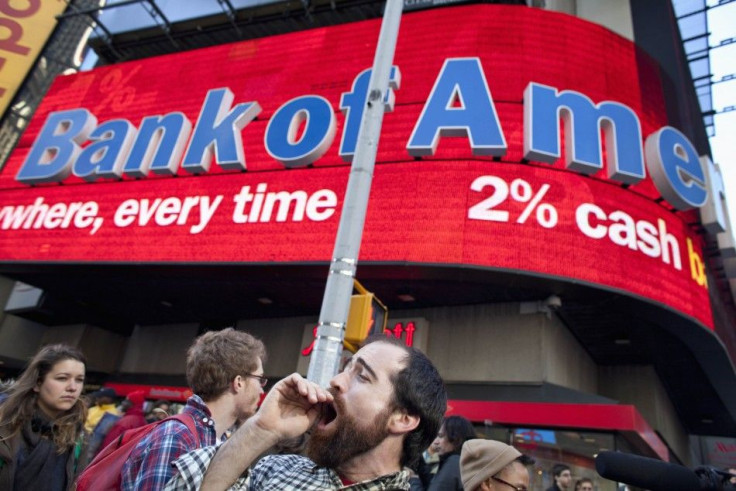Bank of America Drops $5 Debit Card Fee in Major Concession

Bank of America has canceled its plans for a $5 monthly debit card fee in response to public backlash, making it the last major bank to retreat from such a fee.
Bank of America announced the fee -- which would have exempted premium account holders but applied to all standard account holders who made a purchase with their debit card once a month or more -- in late September. Presumably, it thought customers would be angry for a while but then settle down.
But for several weeks now, various banks have been backing away from their plans for debit-card fees.
JPMorgan Chase and Wells Fargo had been testing $3 monthly fees in select states, but they have both announced that they will drop those tests. SunTrust Bank and Regions Financial Corp. have promised to eliminate their existing fees, and Citibank, PNC Bank, TD Bank and Citizens Bank all confirmed that they would not implement fees.
Many banks turned to debit-card fees or considered doing so after the Federal Reserve approved new regulations that will limit the amount of money banks can charge merchants for debit-card transactions. Currently, each time a merchant swipes a customer's debit card, the bank charges the merchant an average of 44 cents. But under the new rules -- an amendment to the 2010 Dodd-Frank financial regulatory bill -- that charge will be capped at 24 cents.
Bank of America said the cap would cost it $2 billion a year, on top of the revenue it has lost from regulations on overdraft fees and other fees.
"The economics of offering a debit card have changed with recent regulations," a spokeswoman said in a statement when Bank of America announced its debit-card fee in September.
Lisa Westermann, a spokeswoman for Wells Fargo justified debit-card fees similarly in an interview with The Wall Street Journal, saying customers had to understand that it wasn't free for banks to provide debit-card services.
Sen. Richard Durbin, D-Ill., who sponsored the amendment in question, said at the time that it was wrong for banks -- many of which reported large profits last year -- to blame their practices on the new regulations.
"It's overt, unfair, and I hope their customers have the final say," Durbin told The Financial Times. "Small business and merchants will benefit from fee relief and consumers will benefit from lower prices, and banks that try to make up their excess profits off the backs of their customers will finally learn how a competitive market works."
It seems that, in an unusual outcome, the banks actually did learn that lesson.
The reversals "represent a rare concession to customer sensitivities over lucrative fees," Robin Sidel of The Wall Street Journal wrote.
© Copyright IBTimes 2024. All rights reserved.











